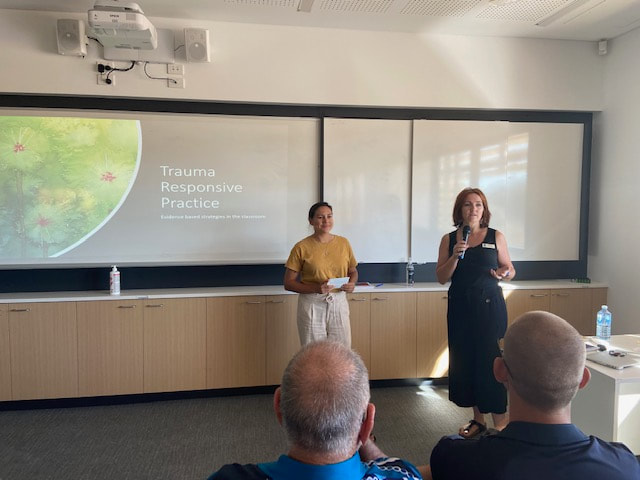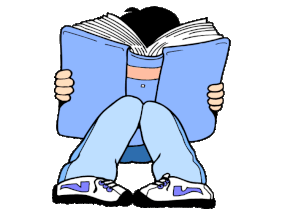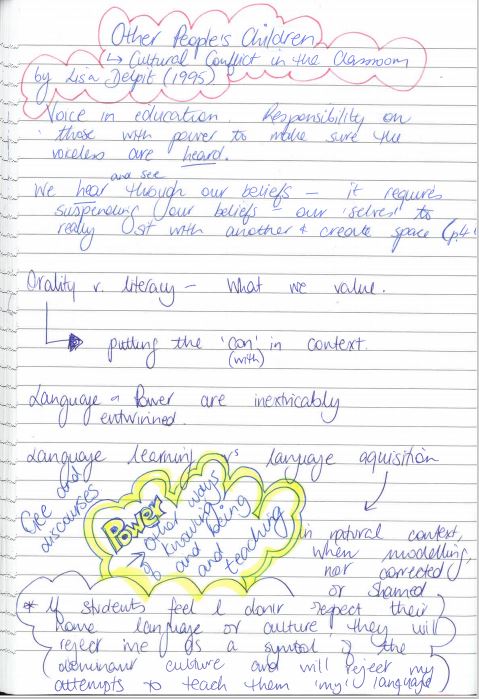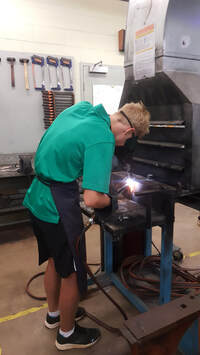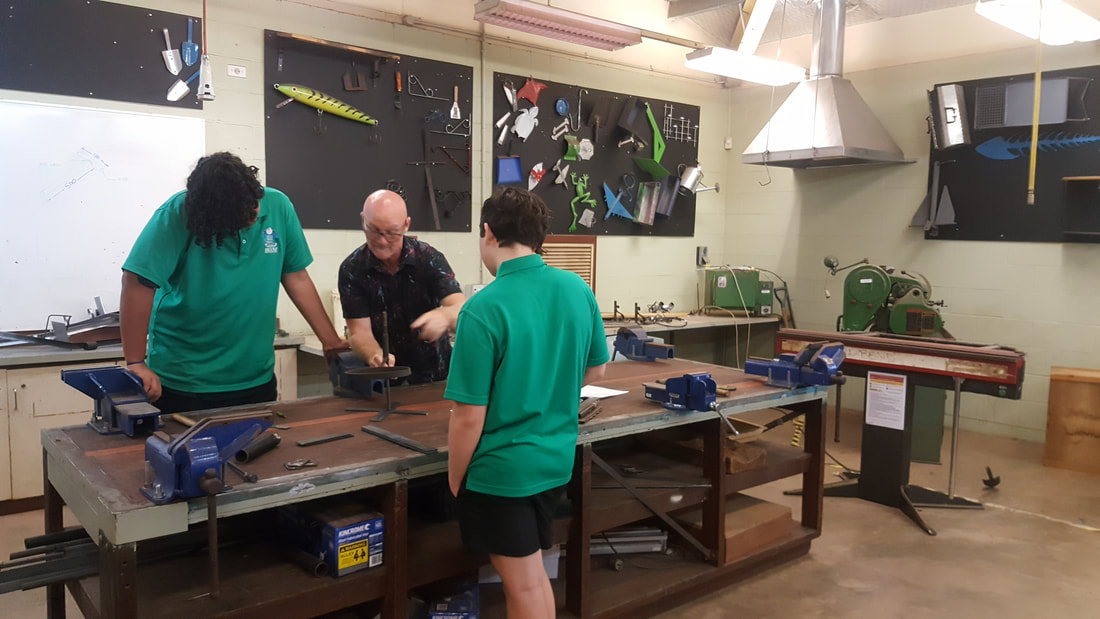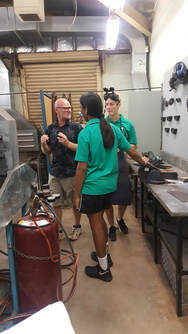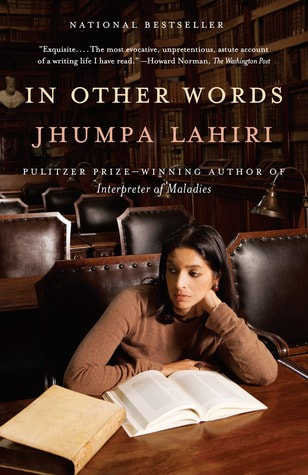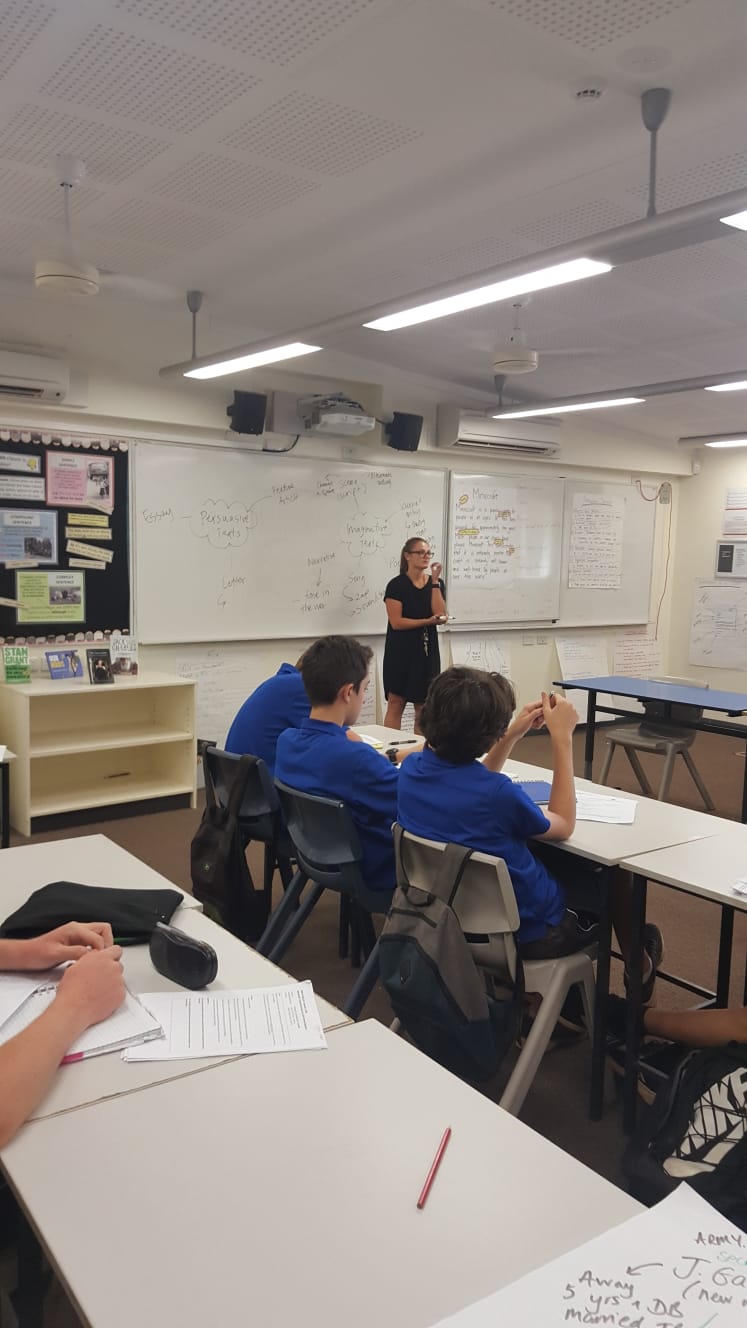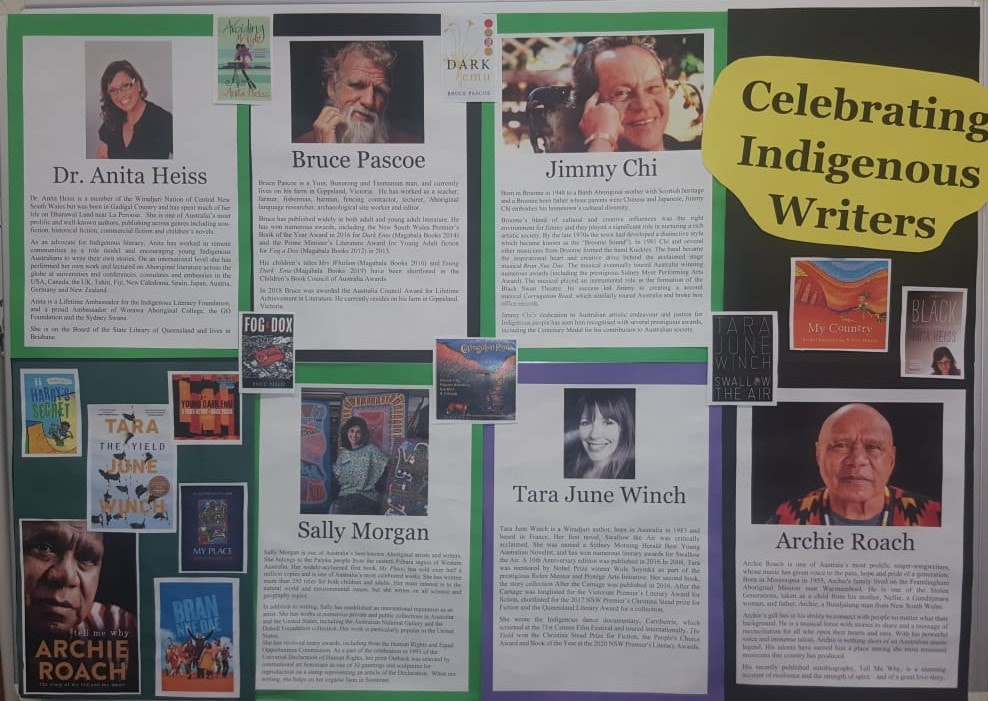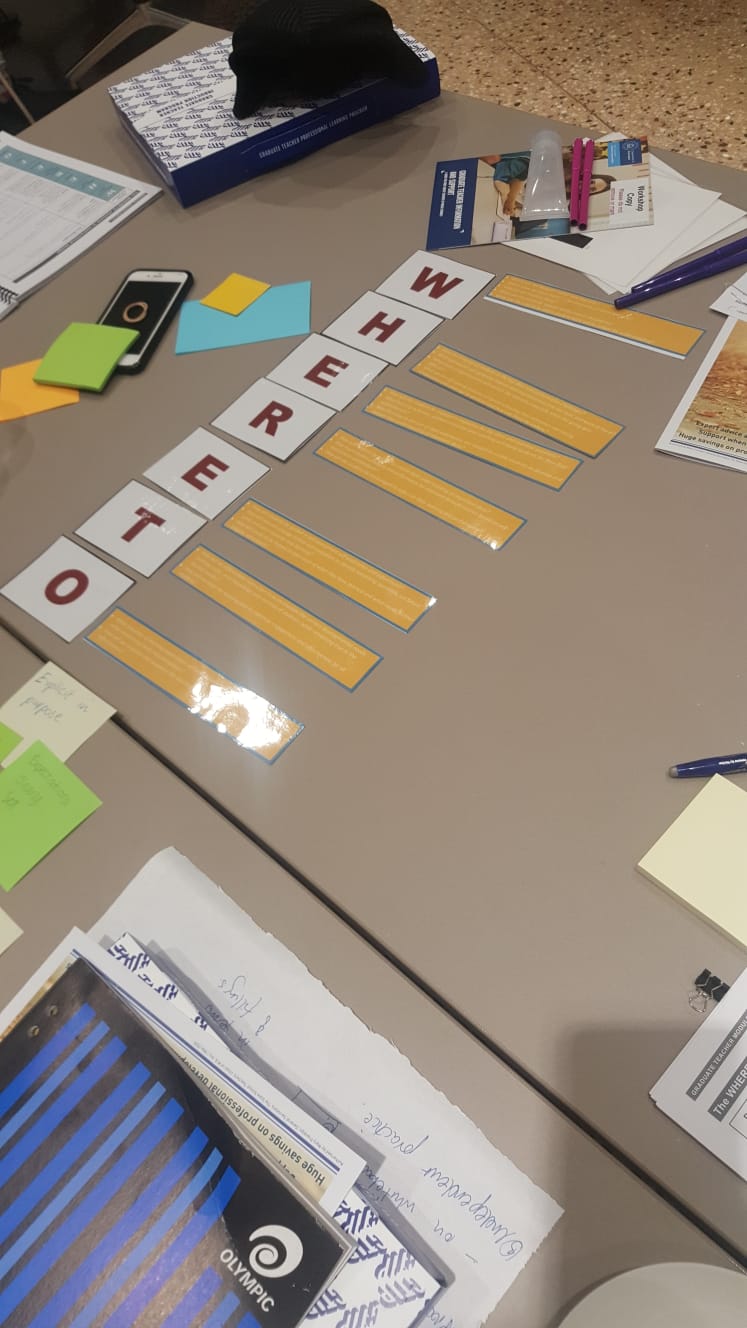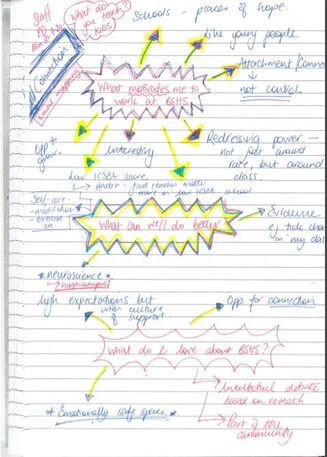|
Today, with a colleague from the Aboriginal Education Team, I co-delivered a two-way professional development session to all staff at Broome Senior High School on the subject of trauma responsive practice. This was the culmination of days of planning, based on years of reading, reflecting and practice. We reflected on what it means to experience trauma, how this affects physiology and what teachers and school staff can do in response; primarily, to create an environment where relational safety is prioritised. We provided concrete advice on how to do this across three domains of relationships, learning environment and pedagogy and provided a checklist for staff to use to support implementing learnings from this PD. We invited feedback from staff, which was incredibly positive, as evidenced here and here.
1 Comment
Today, two of my students returned from suspension. I had planned a guided writing lesson, looking at human rights heroes. As it happened, the lesson didn't pan out that way at all. The ten minutes free reading time I had planned at the start of the lesson was a resounding success. I had new books added to our class library and tactically placed books on student desks to encourage them to engage with them. Students were captivated by the books. So much so, that when I offered them choice about the remainder of the lesson; to continue reading or to proceed with guided writing as previously planned, they grasped the opportunity to read. And read they did. For almost 60 minutes, all students were immersed in books and sharing what they were reading with peers. This lesson reminded me why it's critically important to have a classroom rich in texts; because opportunities for incidental reading should be many and often.
Andrew Stocks is the Head of Learning Area, Science, at Broome Senior High School. He teaches a range of subjects including Human Biology, Virology and Metalwork. Today, I observed him teach a group of Year 9 students Metalwork. Observation is a powerful tool for professional learning...
‘Stocksy’ as students call him, is a master of his profession. Warmth radiates from him, evident as he greets the students by name as they enter the room ‘Alright mate, how are ya’? ‘Rusty, how’s it going’. Spending Period 4 in his class today, I observed the following:
Language and power. Power and language. The two are inextricably intertwined.
I'm currently reading In Other Words, a book by one of my favourite contemporary writers, Jhumpa Lahiri. This book shares her experiences of linguistic exile, as she moves from America to Italy in order to immerse herself in the Italian language. The memoir also shares her experiences of exclusion and difference as the daughter of Indian immigrants living in America. Lahiri writers in her simple, elegant style about how it feels to lack confidence in the dominant language (Italian), to be a part of a society that didn't value her mother tongue (Bengali) and to witness her parents treated differently because of cultural assumptions made by Americans who heard their strong Bengalese accents as they spoke (English). Reading this book is prompting me to think again about the power scales in schools which dip (or dive) in favour of students whose first language is Standard Australian English. Students like my own two children. Our Aboriginal and Torres Strait Islander students are hugely disadvantaged because they don't have the same volume of experience with the dominant language - the language of power - that their non-Aboriginal peers do. Most non-Aboriginal/Torres Strait Islander students at our school grow up immersed in Standard Australian English; it is the language of home, of their peers, of their social circles. They arrive to school, at four years old, with years of oral language in the bank; something we educators know is one of the strongest predictors of achievement in reading and writing. For many Aboriginal and Torres Strait Islander students, this is not the case at all. They are HUGELY disadvantaged by this by this discrepancy and I don't think we give due recognition to the fact that most of our Aboriginal and Torres Strait Islanders come to school speaking an equally important, yet qualitatively very different dialect of English. I apply this statement to myself also; I am monolingual. I think this very fact renders me far too attached to English. I can't the the linguistic woods for the English trees towering to the sky and this lack of perspective impedes how I respond to students. So many questions going forward, largely about my own teaching and how I respond with awareness in a spirit of equity. To be continued... I love working with people who are more experienced than me and share that experience with grace and generosity. Today, Tash used her experience to deconstruct an assessment task with my class. She did this succinctly and immediately and as a result, my students had a much better understanding of the requirements of the task. THANK YOU TASH!
This week, my Year 9 students - all Indigenous students - marked Indigenous Literacy Day by doing a study of Indigenous writers and simultaneously interviewing adults in the school to ask about their favourite Indigenous writers. It was wonderful to celebrate the literary achievements of Australia's First People and made me feel incredibly lucky to work at Broome Senior High School.
This weekend I completed Grad Module One. Only three to go! It was...ok, overall. I don't think we get the best out of ourselves at a Friday evening/all-day-Saturday course, and I think about 50% of it was superfluous to my prior reading...BUT I learned a few things, picked up some new strategies and frameworks for growth so on we go.
Increasingly, I am coming to believe in the sanctity of the teacher-student relationship, particularly with vulnerable students. Relationships are the window through which students experience education, and the teacher-student relationship is the primary one of those. Thus, to obtain positive outcomes for my students, the maintenance of high quality relationships must by my number one priority.
Image below: Reflections on relationships. |

